Communist loyalty no shield for Uighurs from Chinese detention
Relatives of detained Muslim minorities urge international pressure on Beijing to release people being held in camps.
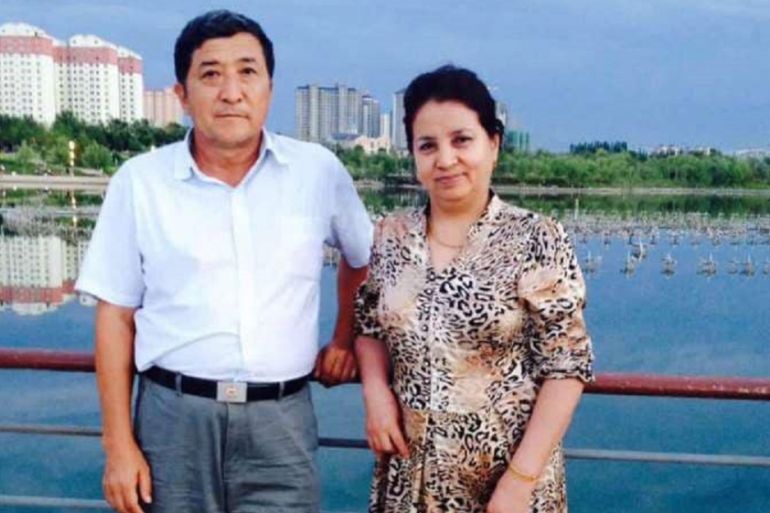
For more than thirty years, Ainiwa Niyazi devoted his life to China‘s Communist Party, teaching children about the virtues of Mao Zedong and Deng Xiaoping at a school just outside Urumqi, the capital city of Xinjiang autonomous region – home to Muslim Uighurs.
Niyazi was promoted to middle school principal, before becoming the party’s vice secretary for education in his hometown of Turpan.
Keep reading
list of 4 itemsChina sanctions US-based Xinjiang monitor
‘Cruel tragedy’: Uighur scholar sentenced to life in prison in China
Xi Jinping calls for protection of ‘hard-won stability’ in Xinjiang visit
He was a popular and respected member of the community – not so much for his party credentials but because of his kindly nature.
Then in early April 2018, the authorities came knocking on Nyazi’s door. They told him to follow them to the police station without giving him any explanation.
|
|
Soon after, Niyazi vanished. He did not even get to say goodbye to his wife, Isarhan Ehmet, who returned home later that day and wondered why her husband had suddenly disappeared.
Niyazi is among hundreds of thousands of Uighurs thought swept up in the mass detention of Turkic-speaking Muslims across China’s westernmost territory.
Even his “elite” status as a local communist official was no protection.
Other exiled Uighurs who spoke to Al Jazeera also said that their relatives, who had been loyal to the Communist Party for years, met the same fate as Niyazi. Now they are calling on the international community to put more pressure on Beijing to release their family members.
According to the United Nations, at least one million Uighurs and other Muslim minorities are being held in detention. The number represents about 12.5 percent of the estimated eight million Uighurs in China.
China has denied that Uighurs are being held against their will. Beijing has described the facilities as “training centres” or “re-education” camps aimed at countering the “terrorist threat” and “extremism” in Xinjiang.
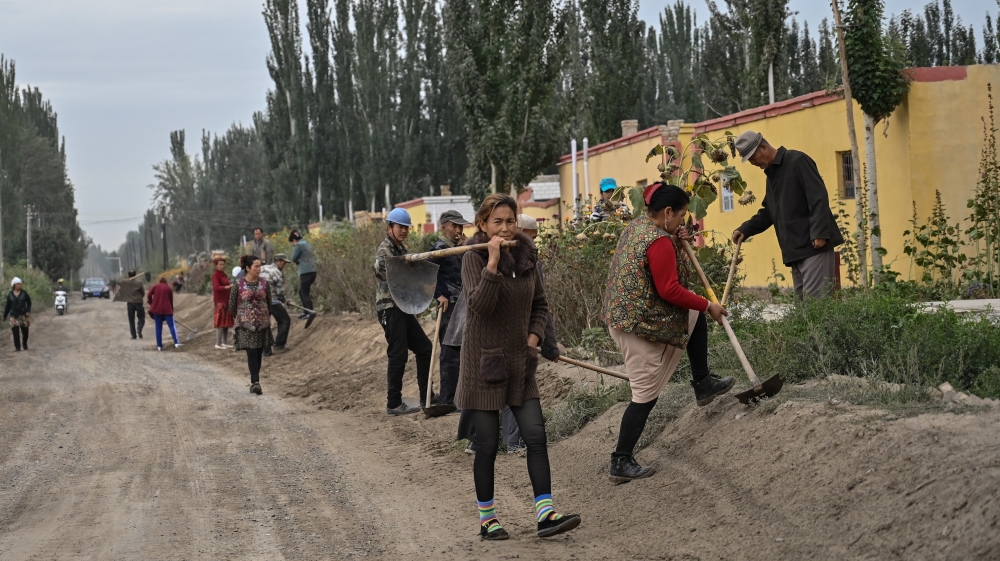
Einar Tangen, a political analyst who advises the Chinese government, also told Al Jazeera that Beijing considers the re-education and training a necessary measure to address poverty.
“This is not something that they are doing because they are trying to be mean to the Uighurs. They actually think that this is helping,” he said.
“They [Beijing] cannot afford to have people who have no future. It is not just about terrorism. They are really anti-poverty.”
‘I cannot stay silent’
Whatever the government’s motivations, Aiziheer Ainiwaer kept silent for months after he heard his father had gone missing. While he was in exile in Belgium he worried about what might happen to his father and other family members who were still living in China.
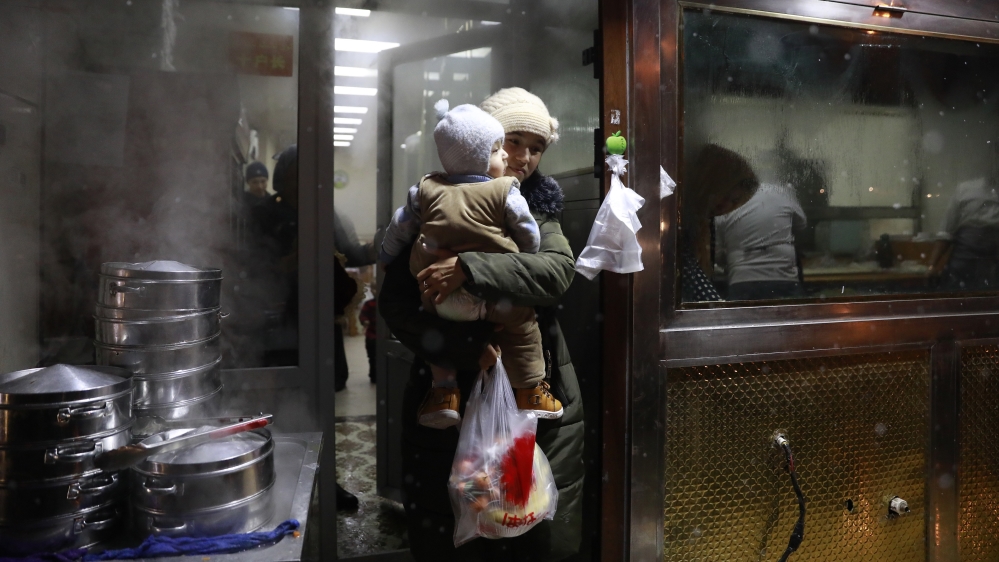
“It was really difficult for me to not do anything about my father’s situation,” Ainiwaer told Al Jazeera, adding that he only learned about what happened through third-party sources, as direct contact with his parents was cut off in early 2018 before his father was imprisoned.
But as his despair over his father’s situation grew Ainiwaer decided to make public his father’s detention, taking his campaign online and on social media, directly challenging official accounts about what was taking place in Xinjiang.
Then last weekend, he received unexpected news. His father had been released after 18 months of what Ainiwaer describes as “arbitrary imprisonment”.
|
|
“He seemed to be fine, although he looked 10 years older than when he was arrested,” Ainiwaer said after speaking to his father in a video call. While his mother welcomed the release, she has developed health problems “due to the stress and sadness”, he added.
Ainiwaer believes that speaking out helped in his father’s cause, and he urged other Uighurs to do the same to put more pressure on the government of President Xi Jinping.
“I encourage every other Uighur to stand up for their loved ones. Stay strong and keep fighting until the end. Don’t give up.”
In July, Shohrat Zakir, Xinjiang’s Uighur governor, said that “more than 90 percent” of those in the “training centres” had been released.
The announcement prompted Uighurs outside China to start a campaign for the Chinese government to substantiate the claim, using the hashtag #provethe90% on social media.
Another Chinese official also said that Uighurs undergoing “re-education” were allowed to “request time off” and to “regularly go home”.
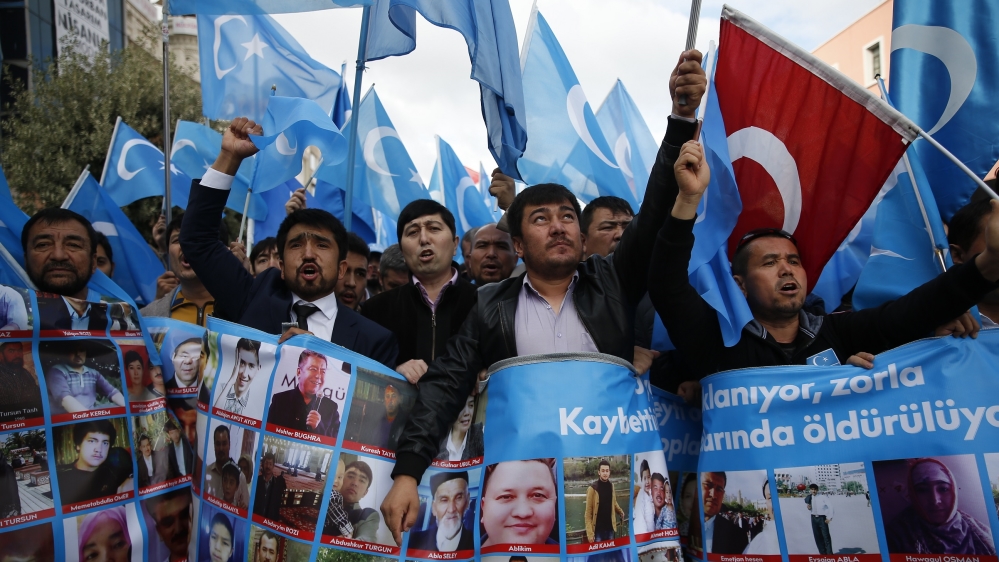
Adiljan Abdurihim, secretary of the Norwegian Uyghur Committee, was sceptical about the Chinese claims.
“We heard similar histories, but we doubt that it is fully true,” he told Al Jazeera.
“It can be a new tactic to silence ongoing testimonies, which we are try(ing) to encourage people to submit.”
Among the Uighur community in Norway, Abdurihim said they had collected statements from 80 families whose relatives had been detained.
— Beat 181: Rinat, USA (English) —
Rinat testifies for his aunt and uncle-in-law, Shadiye Zakir (https://t.co/y5GqOiOXtC) and Turahun Jorway (https://t.co/gdPl0GIgpn) – retired Party members having worked at an Ili power plant for 30+ years. Arrested in Mar. 2018. #uyghurpulse pic.twitter.com/jU4aJapZZM
— Xinjiang Victims Database (@shahitbiz) October 13, 2019
‘Erasing Uighur identity’
Abdurihim also said many Uighur academics in Xinjiang, many of whom are members of the Communist Party, have been singled out by authorities because of their perceived “intellectual” background.
The Chinese government even coined a special and unflattering term, “two-faced”, to describe those considered not thoroughly loyal to the state, according to news reports and other articles on Uighurs.
Among them was Hemdulla Abdurahman, who was detained in January 2019 in Urumqi, a city along the ancient Silk Road.
|
|
Abdurahman joined the Communist Party more than 30 years ago, according to his son, Yashar Hemdulla, who is now living in exile in Norway.
Hemdulla said he only learned of the detention secondhand because he had lost contact with his parents more than a year ago.
His mother, Rayhan Hamut, was also reluctant to contact him about what had happened for fear of retribution.
Hemdulla said that his father worked as a language expert at the government’s Ethnic Language Work Committee, helping preserve the Turkic-based Chagatai and Gokturk languages.
The elderly Abdurahman had also apparently passed information that a brother, Abdulla and his family, had been arrested for reading the Quran and praying.
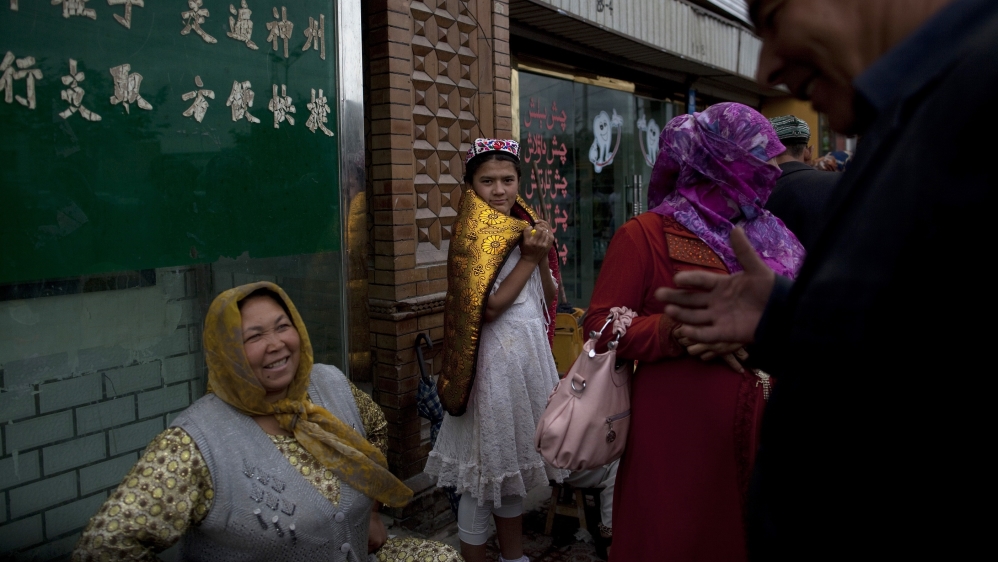
In early 2018, there were reports that China had banned Muslim children from taking Quran classes and attending religious events.
Mosques have also been reportedly banned from broadcasting calls to prayer, while fasting was forbidden during Ramadan.
In July, 20 countries at the UN Human Rights Council signed a letter denouncing the treatment of Uighurs and urging China to “refrain from the arbitrary detention” and restrictions on freedom of movement and religion.
In response, Beijing has invited UN human rights chief Michelle Bachelet to visit Xinjiang to see how the “training centres” were helping the country’s efforts to stamp out “extremism”.
Bachelet recently told Al Jazeera that she was still “working on the details” and no date had been set for the visit.

Tangen, the China expert, said that Beijing wants to carry out and accomplish the re-education programme “as quickly as possible, at a time of great economic uncertainty.”
“This is not meant to torture the Uighurs. That would be the surest way of making sure that they became radicalised. If the local people think that they have been unfairly singled out, their culture was being exterminated, and that they are being forced into one kind of cultural system, there would be resistance.”
But he also said that “only history can tell” whether the policy towards the Uighurs would be “beneficial or not.”
As for Hemdulla, the Uighur exile in Norway, his decision to leave his homeland and his parents 10 years ago was an extremely difficult one.
He said that as an only child, he bore even more pain with his father’s disappearance, but was not giving up hope that his father, Abdurahman, would be released.
“God willing,” he said.
|
|